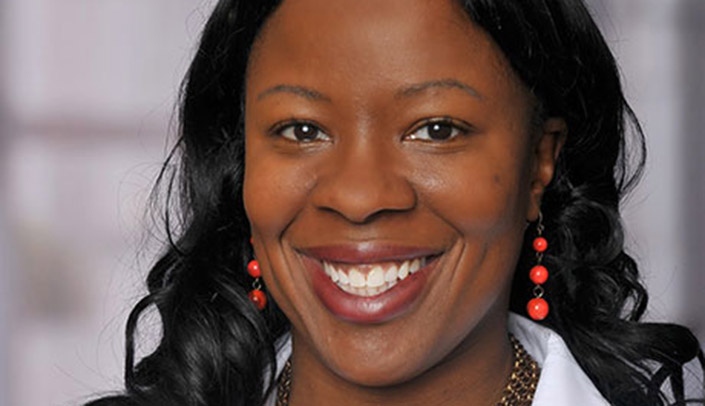Academic medicine must take steps to dismantle structural racism and make anti-racism a core value. Those messages highlighted the Nov. 23 Breakthrough Thinking presentations, meant to spark ideas among campus leaders and guide UNMC’s strategic planning process.
 |
Ruth Shim, MD |
“It’s important that we kneel, but it’s imperative that we act,” said Nwando Olayiwola, MD, chair and professor in the department of family and community medicine at The Ohio State University College of Medicine. “There are so many touchpoints (in health care/public health) where we see racism has taken its toll.”
Academic medicine is not exempt, she said, and curriculums must be examined. As an example, Dr. Olayiwola outlined how false beliefs about biological differences between Blacks and whites impact how people are treated for pain. “Racism is very much present in our teaching and our work.”
Miss the presentations? View a recording of the event.
She discussed her institution’s 21-day anti-racism challenge (suggested readings, podcasts, videos, etc). and long-term anti-racism action plan, which embeds anti-racism work into all facets of the institution from curriculum and communications to faculty/staff training, patient experiences and clinical services.
She quoted Ijeoma Oluo, author of “So You Want to Talk About Race,” who said: The beauty of anti-racism is that you don’t have to pretend to be free of racism to be an anti-racist. Anti-racism is the commitment to fight racism wherever you find it, including in yourself. And it’s the only way forward.”
It’s a journey, Dr. Olayiwola said. It’s not about who you are; it’s about what you do. Racism can be overt, but more often it is subtle. See examples of overt and covert racism.
“Everyone should see anti-racism, anti-oppression, anti-discrimination, anti-homophobia, ant-islamophobia, as part of their day-to-day passion,” Dr. Olayiwola said. “It shouldn’t just be the folks who are victimized who own it.”
Academic medicine is not immune to the effects of structural racism, which drive health inequities, said Ruth Shim, MD, the Luke & Grace Kim Professor in Cultural Psychiatry in the department of psychiatry and behavioral sciences at the University of California, Davis School of Medicine.
Dr. Shim urged educators to stop teaching biological determinism and educate health care professionals on the connection between racism and health.
The American dream — a belief that opportunity exists for all — was founded on a lie that elevated some people above other groups, she said. Referencing Isabel Wilkerson’s book, “Caste: The Origins of Our Discontents,” she said society created stereotypes without exploring the fundamental, underlying explanation for the inferior societal position of Blacks.
Intervening at the level of social determinants is too late, she said, because there is an unfair and unjust distribution of opportunity.
“If we waved a magic wand, racial and ethnic inequities would still exist because of structural racism,” she said, noting the war on drugs and how the population, perception and punishment differed between opioid users and crack cocaine users.
She encouraged attendees to self-reflect and ask: how have I unwittingly contributed to structural racism?
The fight is for equity and justice, Dr. Shim said, and requires political stances and policy interventions. “To stay silent is tacit acceptance of the status quo.”

Thank you Karen for summarizing this so well. We have had some amazing DEI programs, but these were very impactful. We were encouraged to self-reflect? Are we doing that? If not, how come? Did you begin a 21-day Antiracism challenge? Will you begin with us? I agree that the inequity work should not be left for only the victims of the injustices.